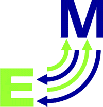
communication
Coordinator: Prof. Dr. Eckhard Wolf, Genzentrum der LMU-München

Unit 478
(End of project 2009)
Aims of the Research Unit:The DFG Research Unit 478 “Mechanisms of embryo-maternal communication” has successfully entered the second funding period (2006-2008). An interdisciplinary team involving experts in embryology, biology of reproduction, biotechnology, and functional genome research was established and further developed to systematically dissect the embryo-maternal cross-talk in cattle in the pre-implantation period. This is achieved by bringing together optimized animal models (e.g. monozygotic twins) and cell culture systems with state-of-the-art techniques for transcriptome and proteome analysis, and bioinformatics.
Major achievements of the first funding period include (see also list of publications):
Holistic transcriptome profiles and candidate gene characterization of oviduct epithelial cells and endometrium in various stages of the estrous cycle
Optimized cell culture systems for oviduct epithelial cells and endometrial cells
Holistic transcriptome profiles of oviduct epithelial cells after co-culture with embryos
Holistic transcriptome and proteome profiles as well as candidate gene characterization of pregnant endometrium in the pre-attachment period in two independent in vivo models (cows after embryo transfer; heifers after artificial insemination)
A custom made bovine oviduct endometrium (BOE) array with 900 identified transcripts
New insights into the role of the extraembryonic matrix as a „mail box“ for signals in the embryo-maternal dialog
Based on these results the goals for the second funding period include an in-depth analysis of specific aspects of embryo-maternal communication using sophisticated experimental designs and analytical tools with markedly improved sensitivity. Specifically, we will address the following topics:
Investigation of position-dependent interactions with the endometrium by holistic transcriptome (Wolf/Blum/Reichenbach) and proteome studies (Arnold) using GFP-transgenic embryos
Characterization of interferon tau-specific effects on transcriptome profiles (Wolf/Blum/ Reichenbach) and proteome profiles (Arnold) in the endometrium.
Nuclear transfer embryos as a model for disturbed embryo-maternal interactions (transcriptome study: Wolf/Blum/Reichenbach, proteome study: Arnold).
Verification and functional validation of candidate genes identified in a-c is facilitated by the development of co-culture systems of embryos with oviduct or endometrium cells (Boelhauve/Hiendleder).
Mechanisms of embryo-maternal immune modulation will be characterized by RT-qPCR studies of candidate genes in endometrium and immune cells of the intrauterine fluid (Ulbrich/Meyer/Einspanier).
Holistic transcriptome analyses of various stages of in vivo derived vs. in vitro produced bovine embryos for monitoring embryonic development (Niemann/Adjaye).
First holistic proteome studies of preimplantation embryos using highly sensitive labeling techniques (Arnold).
Analysis of changes of nuclear architecture and the temporal/spatial occurrence of apoptosis in in vivo derived vs. in vitro produced embryos (Sinowatz/Habermann).
These experiments will provide a unique set of data for modeling the processes of embryo-maternal interaction and implantation using a systems biology approach.
The interactions between the individual projects are outlined in the following figure:
Coordinator:
Prof. Dr. Eckhard Wolf
Lehrstuhl für Molekulare Tierzucht und Biotechnologie
Genzentrum der Ludwig-Maximilians-Universität München
Feodor-Lynen-Strasse 25
81377 München
Phone: +49-89-2180-76800
Fax: +49-89-2180-76849
ewolf@lmb.uni-muenchen.de
